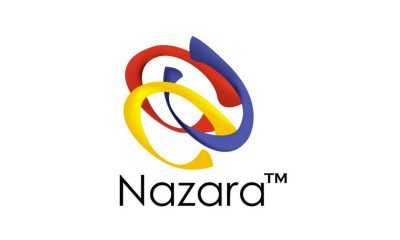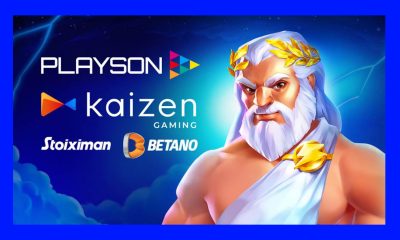Latest News
The Current Absurdity of the Dutch Online Gambling Law
 Reading Time: 4 minutes
Reading Time: 4 minutes
The Senate of the Netherlands has been discussing a bill that proposes to regulate online gambling in the country. A vote has been scheduled to take place this week. The bill was passed by the lower house in 2016 and has been languishing for two years because other issues were given priority.
This article seeks to acquaint Dutch online casino players on various aspects of this important topic through the following sections.
- The existing laws concerning online gambling
- The key points in the proposed bill
- The expected steps forward if the bill is passed
- Comparison with the online gambling laws in the United Kingdom
Existing Dutch Online Gambling Laws
The key legislation covering gambling in the Netherlands is the Dutch Gambling Act of 1964 commonly referred to as the Wok. Under this Act only one licence for land based casino operations has been issued. This is to the Dutch state-owned Holland Casino. The Act does not cover online gambling at all. There is no provision to issue licenses and none are therefore issued. It is illegal to offer any form of online gambling in the Netherlands as of now.
But the fact is that Dutch players are gambling at hundreds of offshore operators generating revenue of over €800 million from online casino gaming and other online gambling verticals like poker and sports betting. However, it is not illegal for Dutch players to play at these sites. The players themselves will not face prosecution. In the absolute worst case they may lose their deposits if the sites are blocked. If you’re willing to take a risk then you can play at any of our recommended online casinos. They are regulated outside Holland by top notch agencies like the Malta Gaming Authority and the Government of Gibraltar.
The Dutch Remote Gaming Bill
From 2012, the Dutch Gaming Authority, commonly referred to as KSA, had the task of regulating gambling in the country. As a part of its efforts the Remote Gambling Bill for online gambling was prepared. Here it is important to point out that two reasons have been cited for this.
- Pressure from the European Union to bring a competitive and regulated online gambling structure in Holland on par with that prevalent in some other countries like the United Kingdom.
- The Dutch government sees the massive online gambling turnover as a revenue source that is presently going out of the country. Regulating online gambling will bring taxation and licensing revenue to the national exchequer.
The key points of the Remote Gambling Bill are as follows.
Procedure
- Interested online gaming operators will have to apply for a license.
- KSA would scrutinise applications and award a five-year license to deserving operators.
- Applicants based inside the European Economic Area would be given preference.
Taxation
- The main revenue would come from a 29% tax on gross gaming revenue.
- Another 1.5% would be levied to fund the activities of the KSA.
- 0.5% would be levied to create a Responsible Gambling fund to rehab players inflicted with problem gambling.
Other restrictions
- Limits have been proposed on marketing sites via non-pay TV channels.
- There are restrictions on promoting in-play wagers during sports broadcasts.
- Online gambling operators are to be prohibited from accepting wagers on any sports team with which they have a sponsorship deal.
The Way Forward
If the bill is passed by the Senate then the process of receiving and scrutinising applications can begin. Operators at present serving Dutch players through offshore regulators have expressed intent to become a part of the national regime.
Unfortunately, there is a strong move to exclude the operators presently functioning from overseas locations, also referred to as grey area operators, from the licensing process. If they are not altogether excluded, they are likely to face a cooling off period that may range from two years to five years. This was confirmed by Justice Minister Sander Dekker. This means that the best brands presently operating in Holland will not be given licenses.
- If they are prevented from operating in the regulated market, Dutch players will be deprived of the best brands.
- If they continue to operate from offshore locations, then KSA may be unsuccessful in channelizing Dutch players to licensed operators.
In either event, the system as a whole will lose out. There are even whispered rumours that the Dutch government may create a single state owned monopoly to offer online gambling services, as it has done with land based gambling.
Comparisons with the United Kingdom
The United Kingdom implemented a regulated online gambling regime about a decade ago. But it went about the business in a completely different way. It took the offshore operators then functioning in Britain on board. The United Kingdom Gambling Commission insisted that will have to apply for fresh licenses but was sensitive to the concerns these operators faced and tried to find mutually acceptable solutions in an amicable manner.
Today the United Kingdom Gambling Commission is regarded as one of the strictest regulators. It has imposed strict practices to be followed for prevention of underage gambling and problem gambling. Advertisements deemed unsuitable are immediately acted upon. Bonus and promotion offers that do not meet its standards of fairness and transparency have to be retracted. Hefty punishments are imposed on defaulters.
This has created a win-win situation for everybody.
- The British players are getting products from the best online gaming operators in a favourable environment.
- The online gaming operators are benefitting from players moving to them from sites that are not licensed in Britain.
- The British government is getting additional tax revenues in the exchequer.
When one compares the Dutch and British scenarios it is evident that the Dutch absurdities are not likely to really succeed unless corrections are made before the legislation is passed.
Source: Latest News on European Gaming Media Network
This is a Syndicated News piece. Photo credits or photo sources can be found on the source article: The Current Absurdity of the Dutch Online Gambling Law

Latest News
Bazoom Becomes the Official Sponsor of Gamblers Connect’s SiGMA Central Europe Delegation
Reading Time: < 1 minute
Gamblers Connect, the award-winning iGaming affiliate and media platform, is excited to share that Bazoom will be the official sponsor of Gamblers Connect’s delegation at the upcoming SiGMA Central Europe Summit in Rome, Italy.
As one of Gamblers Connect’s long-standing partners and one of the most trusted link-building and content platforms in the iGaming industry, this collaboration is another great example of creating real impact through strong partnerships. Both companies share the same vision, building with quality, not noise, and this sponsorship perfectly reflects that shared belief.
Thanks to Bazoom’s support, the Gamblers Connect team will have a greater presence at one of Europe’s most important iGaming events, connecting directly with operators, affiliates, and industry leaders from all over the world.
Gjorgje Ristikj, Founder & CEO at Gamblers Connect: “Thanks to Bazoom Group’ support as our sponsor, Gamblers Connect will be present at SiGMA Rome. Partnering with companies that believe in our mission and invest in our growth is exactly what allows us to show up, connect and deliver even more value.”
Bazoom’s innovative platform has become an essential ally for companies looking to strengthen their digital footprint. With access to nearly 100,000 verified media outlets worldwide, the platform makes it easier than ever to acquire quality backlinks and tailored content that drives real growth, all through a transparent, pay-per-link model.
Kristoffer Krog, Head of Global Partnerships at Bazoom: “At Bazoom we always strive to stay ahead of our competition and maintain our position as industry leader within link building. The partnership with Gamblers Connect for SiGMA Rome reflects exactly that, as we share the same ambitions, know-how and expert knowledge within the industry.”
The post Bazoom Becomes the Official Sponsor of Gamblers Connect’s SiGMA Central Europe Delegation appeared first on European Gaming Industry News.
Latest News
A Record-Breaking Win on the Eve of Diwali Lights Up an Indian Expat’s Life Forever
Reading Time: < 1 minute
The UAE Lottery has made history as it officially announces the first-ever Grand Prize winner of AED 100,000,000, a moment that marks an unprecedented milestone for the country’s entertainment and gaming industry.
Anilkumar Bolla, a 29-year-old Indian national and long-time Abu Dhabi resident, struck gold in The UAE Lottery’s 23rd Lucky Day Draw #251018 held on Saturday, October 18, 2025, becoming an instant multimillionaire and forever signing his name in The UAE Lottery’s record books.
At the time of the draw, Anilkumar was at home relaxing when he received the life-changing call from The UAE Lottery. A loyal participant since the lottery’s launch, he was completely shocked and overjoyed by the news, admitting he still can’t believe it happened. Anilkumar first shared the exciting news with a colleague before calling his brother back home in India.
The post A Record-Breaking Win on the Eve of Diwali Lights Up an Indian Expat’s Life Forever appeared first on European Gaming Industry News.
Latest News
Movers and Shakers: 24/7 Content, Strict Integrity, and Constant Feedback – BETER’s Approach to Sustainable Partnerships
Reading Time: 4 minutes
“Movers and Shakers” is a dynamic monthly column dedicated to exploring the latest trends, developments, and influential voices in the iGaming industry. Powered by GameOn and supported by HIPTHER, this op-ed series delves into the key players, emerging technologies, and regulatory changes shaping the future of online gaming. Each month, industry experts offer their insights and perspectives, providing readers with in-depth analysis and thought-provoking commentary on what’s driving the iGaming world forward. Whether you’re a seasoned professional or new to the scene, “Movers and Shakers” is your go-to source for staying ahead in the rapidly evolving iGaming landscape.
We spoke with Oleg Onegov, Head of Strategic Partnerships & Account Management at BETER, about the fast-betting provider’s approach to cultivating, strengthening, and sustaining relationships with partners.
Can you tell us about your career journey and your current role as Head of Strategic Partnerships & Account Management at BETER?
I’ve been working in the betting and iGaming industry for several years, mainly focusing on client relations and business development. Over time, I realised that my strongest skill was in building long-term partnerships and helping clients derive real business value from the products they use. At BETER, I lead the Strategic Partnerships & Account Management team, focusing on ensuring we deliver not only content but also help operators and aggregators grow with it—whether through improved integrations, new products, or data-driven insights. This is critical to scaling BETER’s presence in the esports and sports ecosystem. My role also sees me work closely with internal and external stakeholders to deliver value-driven solutions that support operational excellence and long-term commercial goals.
Different operators and aggregators have different needs. How do you and your team ensure that BETER’s products and solutions remain in demand and are continuously aligned with each client’s evolving business and market changes?
BETER is renowned for providing 24/7 live streaming, real-time data, and hyper-accurate odds for approximately 700,000 fast-paced esports and sports events annually, offering up to 50 markets per event with an average operator margin of 7.5% or higher.
Our esports portfolio includes ESportsBattle tournaments featuring eFootball, eBasketball, eHockey, and eTennis. Our sports portfolio includes the Setka Cup table tennis series, BSKT Cup basketball league, GTR Cup tennis tournaments, and Padel tennis, as well as coverage of official cricket tournaments and leagues worldwide.
In addition to our fast-paced content, we offer a comprehensive Esports Odds Feed, delivering market-leading odds with the highest uptime for more than 450 tournaments worldwide. This includes over 40,000 pre-match and live events annually across popular titles such as CS 2, Dota 2, League of Legends, Valorant, and more.
We are also continuously working on obtaining regulatory approvals in all major markets globally, including U.S. states such as New Jersey and Colorado, where our content is live on bet365’s local domains.
When it comes to ensuring that our products remain in demand and aligned with each client’s evolving business and market changes, our approach is never “one size fits all.” My team and I maintain close communication with every partner to ensure we’re consistently meeting their needs. Some clients aim to maximise esports engagement, others focus on traditional sports, while some want to experiment with new formats such as eTennis or Padel—or even launch fully branded, customised tournaments like our dedicated eFootball series designed specifically for operator needs.
We constantly review performance data, align on KPIs, and adjust delivery or features accordingly. Moreover, our product roadmap is highly flexible—we prioritise developments that bring the most value to our clients’ business models. Ultimately, close collaboration with operators and aggregators helps us understand regional specifics and tailor our products to different markets, while our agility in implementation and regulatory readiness give partners confidence that BETER’s solutions will continue to fit their evolving needs.
Many companies emphasize client success at the start of a relationship, but sustaining it over time is much more challenging. What specific processes, practices, or approaches does BETER use to support clients throughout the entire journey and ensure that partnerships grow into long-term, trust-based relationships?
At BETER, client success is ongoing. My team runs regular business reviews and performance check-ins, where we don’t just present numbers but also propose explicit next steps. We involve product managers at the beginning of new partnerships, so clients can see how their feedback translates into real improvements. Transparency is also key, and we share daily reports, monitor incidents in real time, and communicate openly if something needs fixing. This kind of consistency and accountability builds trust and makes our partnerships long-lasting.
Feedback loops are vital. How does BETER work with client feedback, and in what ways does it influence your product development and solution improvements?
Feedback is at the core of how we evolve. We collect it in various ways, including through structured NPS surveys, regular calls, daily chats, and even during integration discussions. Every input gets logged and shared across product, trading, and IT teams.
Many of our most successful launches, such as new esports markets for Dota 2 and CS 2 titles in our coverage of tournaments worldwide, came directly from client requests. Our eTennis series also originated from a product discussion sparked by a client’s feedback, which expressed the need for completely new offerings for their bettors.
What matters is not just listening, but also closing the loop and showing the client how their feedback shaped the roadmap and what the result looks like in practice.
What are the most important pillars of BETER’s operations that operators or aggregators pay the most attention to—both when entering into a partnership and throughout the entire collaboration?
From my experience, there are four pillars clients care about most.
First is content quality and variety — at BETER, we offer fresh and engaging disciplines such as eFootball, eBasketball, and eTennis, supported by diverse game formats.
Second is reliability, especially when it comes to uptime, latency, and the accuracy of our data feeds and live streams. That’s why our team works tirelessly to maintain the highest possible uptime across all our products.
Third is integrity and compliance — operators need confidence that the product is fair, transparent, and secure. Our dedicated Integrity team ensures that only 0.01% of matches have been flagged as suspicious.
Finally, there’s our approach to partnerships — we’re not just a provider; we act as an extension of our partners’ teams, ready to adapt and innovate together.
This combination of high-quality content, operational excellence, trust, and genuine collaboration is what keeps our partnerships strong from day one — and well into the future.
The post Movers and Shakers: 24/7 Content, Strict Integrity, and Constant Feedback – BETER’s Approach to Sustainable Partnerships appeared first on European Gaming Industry News.
-
Latest News3 months ago
Light & Wonder to Participate in the 2025 Australasian Gaming Expo
-
Latest News2 months ago
ReferOn Shortlisted for Acquisition & Retention Partner of the Year at SBC Lisbon 2025
-
Latest News3 months ago
Gavin Hamilton Joins Sports & Wellbeing Analytics as Chairman to Accelerate Global Expansion
-
Latest News2 months ago
Duels for Friends in Trophy Hunter. Invite your friends and create a shared space for fun and competition.
-
Latest News2 months ago
BC.GAME Launches “Nezha” Slot with Up to 46,656 Ways to Win and 10,000x Max Payout
-
Latest News1 month ago
Announcement: 25th September 2025
-
Latest News2 months ago
NODWIN Gaming Acquires Sony Interactive Entertainment’s Stake in Evo; Becomes Majority Holder
-
Latest News2 months ago
Flamez – A Fiery New Online Casino Contender from Ganadu

















You must be logged in to post a comment Login